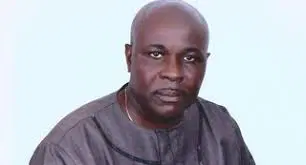The 16th BRICS Summit, held from October 22 to 24, 2024, in Kazan, Russia, marked a significant moment in the evolution of the group, which expanded from BRIC to BRICS+. This year’s summit, themed “Strengthening Multilateralism for Fair Global Development and Security,” welcomed five new members: Egypt, Ethiopia, Iran, Saudi Arabia, and the United Arab Emirates (UAE).
This gathering, attended by leaders and representatives from over 20 countries, highlighted a shift in global dynamics. It served as a testament to Russia’s continued influence, despite Western efforts to isolate it following the Ukraine invasion and earlier events like the annexation of Crimea. The summit not only emphasized the resilience of Russia but also showcased its strong ties with countries in the Global South.
Key Outcomes and Significance of the Kazan Declaration
One of the primary aims of the summit was to foster an alternative to the existing Western-dominated global governance structures. The Kazan Declaration that emerged from the summit included several critical agreements:
- UN Security Council Reform: The declaration called for a reformed United Nations Security Council, advocating for the inclusion of the State of Palestine in the UN, contingent upon a two-state solution agreement.
- Alternative Financial Systems: Leaders discussed the feasibility of establishing an independent cross-border settlement system, moving away from the SWIFT network, which is primarily influenced by Western powers. There were also suggestions to utilize national currencies and payment systems to enhance financial autonomy.
- Strengthening the New Development Bank (NDB): The summit proposed invigorating the NDB, established in 2014, to provide member countries with enhanced financial resilience against external shocks.
Nigeria’s New Role as a BRICS+ Partner Country
A notable highlight for Nigeria was its designation as one of 13 partner countries to BRICS+, alongside Algeria, Belarus, Bolivia, Cuba, Indonesia, Kazakhstan, Malaysia, Thailand, Turkey, Uganda, Uzbekistan, and Vietnam. This status raises questions about its implications:
- Partner Country Designation: While the criteria for becoming a partner country remain unclear—unlike the structured membership requirements of entities like the European Union—it suggests that these nations have expressed interest in joining or are being considered for future membership.
- Geopolitical Considerations: The selection of partner countries seems to align with strategic geopolitical considerations, similar to the factors influencing the last expansion at the 15th summit. For instance, Ethiopia‘s inclusion is significant due to its rapid economic growth and role as the seat of the African Union, while Egypt serves as a critical link between Africa and the Arab world.
The Implications of BRICS+ Expansion
The admission of major oil producers like Saudi Arabia and Iran into BRICS+ signifies a potential reconfiguration of global energy politics. Saudi Arabia’s alignment with BRICS brings it into an economic bloc with China, the world’s largest oil importer. This move could reshape energy trade dynamics and foster collaboration among OPEC+ members.
The broader implications of these developments point to a growing desire among BRICS nations to challenge established power structures, such as the G20. As the African Union was recently admitted as the 21st member of the G20, BRICS+ aims to position itself as a counterbalance to such groupings.
Conclusion
The 16th BRICS Summit in Kazan underscored a critical moment in international relations, with the group emerging as a formidable force advocating for multilateralism and equitable global governance. The expansion of BRICS+ and the formation of strategic partnerships among member countries reflect a shifting landscape in global politics, where traditional power dynamics are increasingly challenged. For nations like Nigeria, this partnership represents a unique opportunity to engage in meaningful dialogue and collaboration that could enhance their economic and political standing on the world stage.

